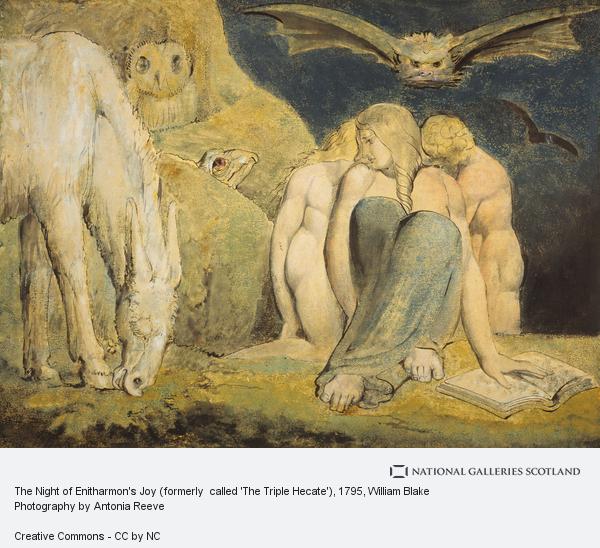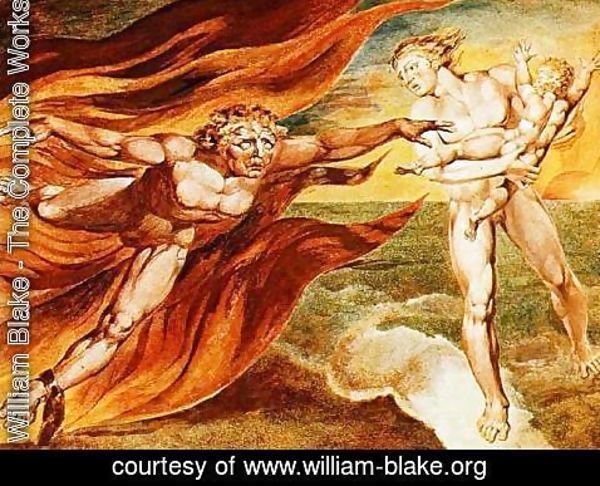First posted March 2014
If an individual had traversed a cycle in his psychological development from its inception of being introduced to a new level of truth, to the climax of assimilating that truth into his being, his new status could be represented by this image. The process had included a descent into the underground where he was sifted like wheat as was Nebuchadnezzar or Simon Peter, and who spent a period in the House of Death. The descent involved divisions; a breaking down of the unity of the vision of God as undifferentiated consciousness into man and God, man and woman, good and evil, reason and energy, body and soul.
The upward leg of the cycle was enacted by the reassembly of the divided parts by becoming aware of the value of each unit as half of a pair of contraries which comprise a whole. The return journey could also be described as recognizing the positive and negative dimensions of everything which had been discovered in the unconscious. Or looking at the return journey as related to outward experience it entails withdrawing the projections; seeing the outer world objectively rather than as one's own shadow side.
 |
Yale Center for British Art
Large Color Printed Drawings Christ Appearing to the Apostles after the Resurrection |
[27] For which is the greater, one who sits at table, or one who serves? Is it not the one who sits at table? But I am among you as one who serves.
[28] "You are those who have continued with me in my trials;
[29] and I assign to you, as my Father assigned to me, a kingdom,
[30] that you may eat and drink at my table in my kingdom, and sit on thrones judging the twelve tribes of Israel.
[31] "Simon, Simon, behold, Satan demanded to have you, that he might sift you like wheat,
[32] but I have prayed for you that your faith may not fail; and when you have turned again, strengthen your brethren."
Matthew 18
[10] "See that you do not despise one of these little ones; for I tell you that in heaven their angels always behold the face of my Father who is in heaven.
[12] What do you think? If a man has a hundred sheep, and one of them has gone astray, does he not leave the ninety-nine on the mountains and go in search of the one that went astray?
[13] And if he finds it, truly, I say to you, he rejoices over it more than over the ninety-nine that never went astray.
[14] So it is not the will of my Father who is in heaven that one of these little ones should perish.
John 17
[1] When Jesus had spoken these words, he lifted up his eyes to heaven and said, "Father, the hour has come; glorify thy Son that the Son may glorify thee,
[2] since thou hast given him power over all flesh, to give eternal life to all whom thou hast given him.
[3] And this is eternal life, that they know thee the only true God, and Jesus Christ whom thou hast sent.
[4] I glorified thee on earth, having accomplished the work which thou gavest me to do;
[5] and now, Father, glorify thou me in thy own presence with the glory which I had with thee before the world was made.
...
[11] And now I am no more in the world, but they are in the world, and I am coming to thee. Holy Father, keep them in thy name, which thou hast given me, that they may be one, even as we are one.
...
[25] O righteous Father, the world has not known thee, but I have known thee; and these know that thou hast sent me.
[26] I made known to them thy name, and I will make it known, that the love with which thou hast loved me may be in them, and I in them."
Jerusalem, Plate 96, (E 255) "Then Jesus appeared standing by Albion as the Good Shepherd
By the lost Sheep that he hath found & Albion knew that it
Was the Lord the Universal Humanity, & Albion saw his Form
A Man. & they conversed as Man with Man, in Ages of Eternity
And the Divine Appearance was the likeness & similitude of Los"There are three copies of this print: one in the Tate, one in the National Gallery, and one in the Yale Center for British Art. The copy in the Tate Museum, although in the poorest condition, shows the greatest emotional intensity in the compassionate expression of the Christ, and in the devoted response of the apostles.





.jpg)



